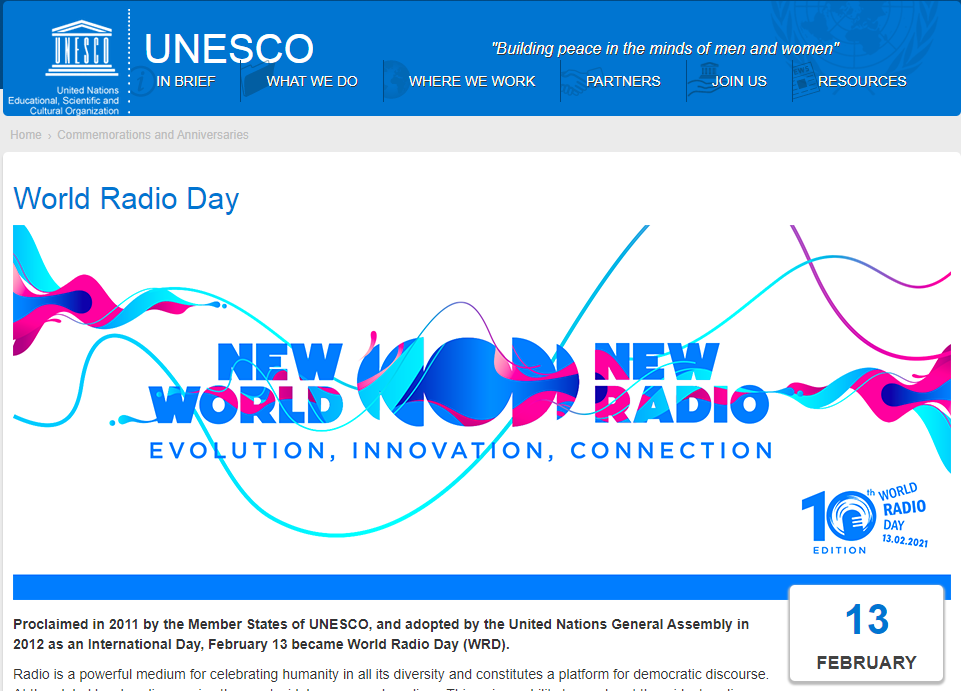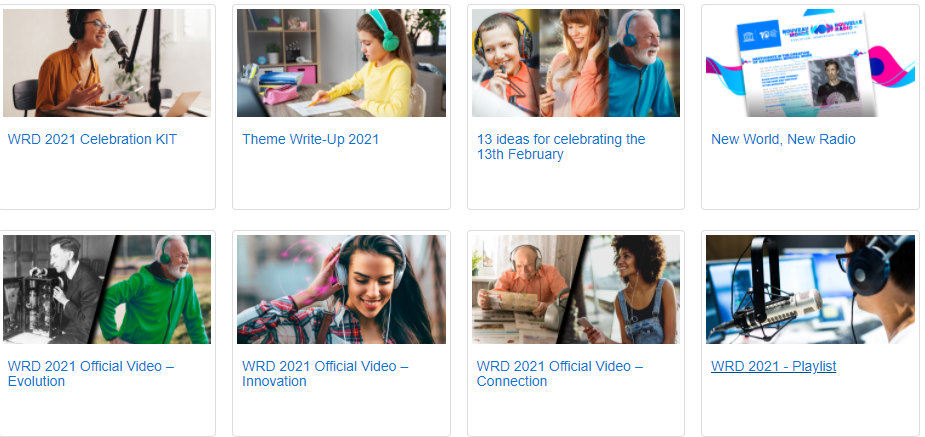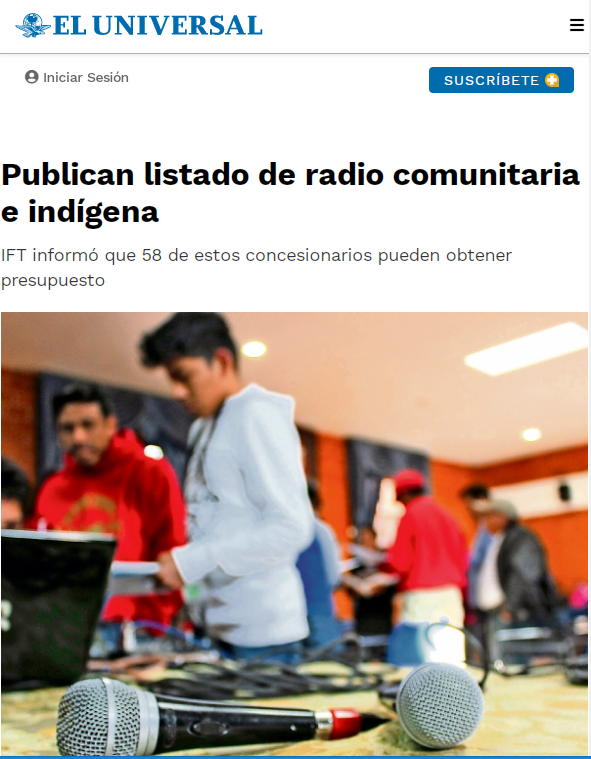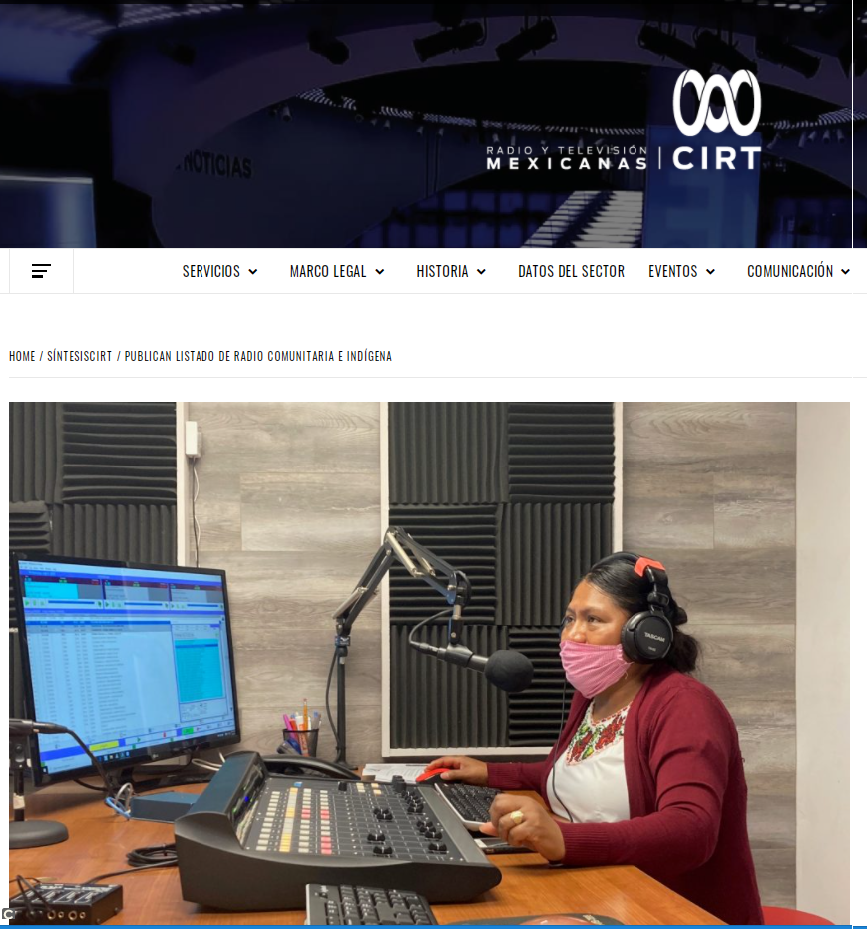
Source
World Radio Day (WRD) was established in 2011 by Unesco member states and adopted by the United Nations General Assembly in 2012 as an International Day. The date of February 13 was chosen to commemorate the anniversary of the first United Nations radio broadcast, which occurred 65 years earlier in 1946. The proposal had been made the year before, in 2010, by the Spanish Academia de la radio, and the project was endorsed and supported by the major broadcasting associations, including the Arab States Broadcasting Union (ASBU), the Asia-Pacific Broadcasting Union (ABU), the African Union of Broadcasting (AUB), the Caribbean Broadcasting Union (CBU), the European Broadcasting Union (EBU), the International Association of Broadcasting (IAB), the North American Broadcasters Association (NABA), the Organización de Telecomunicaciones Ibeoramericanas (OTI) and major international broadcasters, such as the BBC and Vatican Radio.
The function of radio

Source
“Radio is a powerful medium for celebrating humanity in all its diversity and provides a platform for democratic discourse. Globally, radio remains the most widely used medium. This unique ability to reach the widest audience means that radio can shape a society’s experience of diversity, serve as an arena in which all voices can speak, be represented and heard. Radio stations should serve diverse communities by offering a wide variety of programming, viewpoints and content and reflect the diversity of audiences in their organizations and operations”.
2021 WRD is about Evolution, Innovation & Connection

Source
Broadcasters are also offered 13 ideas for organizing initiatives: talk about your evolution; open up the debate; broadcast a special program; open your doors; engage (interact with your audience); have fun!; organize a quiz; renew yourself (offer a workshop with your team around the theme “new world, new radio”); produce a radio series (a specific podcast); imagine the future; remember your “radio”.


